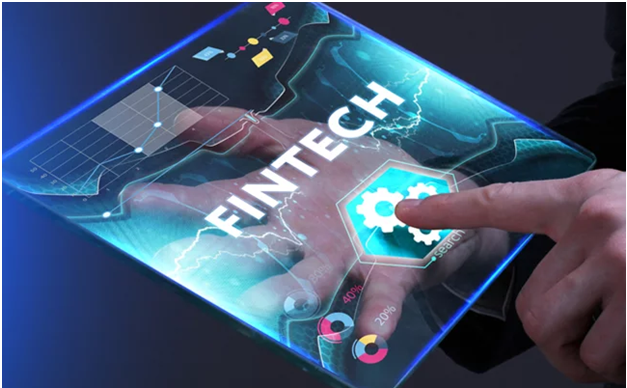Fintech is a combination of finance and technology. It is one of the crucial aspects of the latest technology which is going to shape the economy of the modern world. Here in the blog, you will find about fin-tech in brief and what its top money-making business models are. So let’s dive in.

What is Fintech
Fintech describes all the technology that delivers and improves financial services. The term simply can be used to any innovative way people transact business. Earlier the term fintech was for computer technology used in a bank office or trading firms. However, with the internet era, the meaning and usage of fintech have immensely grown. The technology works on computers and mobile devices through specialized software and algorithms.
Fintech is more inclined towards consumer-oriented services. It is used by the majority of sectors like health, education, banking, and more. Also, it is used by business owners and consumers for finances management. Fintech incorporates industries that involve payments, lendings, insurance, credits, and more.
The technology makes numerous financial activities easy like you can deposit a check through mobile phones, transfer money from phones, manage your investments through a computer without needing personal assistance, device, bypass credit card application bank branch, and more.
People are utilizing Fintech services tremendously in their daily life. EY’s 2017 fintech Adoption Index shows that almost one-third of consumers use two or more Fintech services.
Fintech for Cryptocurrency
Fintech is the technology behind the development of cryptocurrencies, and its usage is simpler. Fintech is the reason why cryptocurrencies like bitcoin can be used on several online platforms. Fintech companies and industries are exploring more benefits and usage of cryptocurrencies like Ethereum and Bitcoin.
Cryptocurrency is a blockchain technology as the data is stored in parts known as blocks. This makes the processing information faster. Fintech industries are very much inclined to blockchain tech as it lowers the chance of hack and frauds.
Top money-making business models in the fintech industry
Most popular fintech startups have almost the same characteristics. They offer secure and easy financial services. They eventually provide better methods compared to traditional services. Fintech industries are opening several effective ways for consumers to manage their finances like credit profiling, insurance underwriting, microloans, and much more.
Here are the ten most money-making business models achieved by Fintech industry:
#1 Transaction delivery
In order to provide better consumers with better financial services, the industry should have relevant consumer data. The fintech industry is doing exactly that, with the help of expense management apps that collect information about consumers. This data helps companies to know the potential of their users for premium plans, mutual funds, or real estate investments.
#2 Alternative credit scoring
Strict and outdated credit scoring criteria of banks make it harder to get conventional bank loans for consumers with a steady income. However, fintech companies are considering data points like percentile scoring among borrower groups, social signals and more.
These are some essential factors that will lead to better decisions if joined with a self-learning algorithm. For instance, a lender will not have to deal with a loan recovery, if they get aware of negative profiles before loan disbursement.
#3 Alternative insurance underwriting
Today insurance companies are providing similar premium plans to similar looking people with similar habits. However, people may have different health concerns and what premium plans calculation fails. The fault premium plans are because of averaging out; the plans do not account for non-quantifiable factors.
Fintech companies are adapting alternative credit scoring to improve this problem. For example, Carpe data company has enabled a premium computing mechanism that checks social signals, medical history, and lifestyle.
If insurance companies incorporate these mechanisms with self-learning algorithms, it will help them know whom to give insurance to. Also, they can provide different insurance terms and conditions and have multiple payment options like co-pay payment methods.
#4 Peer-to-peer lending
Peer to Peer and Peer to business are the two lending models that help investors receive good returns. It is far much better than the returns they get in debt markets as where they need to give their money to pre-approved money and vetted borrowers.
If a person borrows from another person, it’s called peer to peer lending. The same concept is applied for peer to business lending here to businesses that borrow money from one or several individuals.
Funding Circle is a fintech company that is making a platform that will connect borrowers to lenders and will earn from borrower’s repayment.
#5 Small ticket loans
Most of the banks and lenders do not prefer to underwrite small-ticket loans as it’s expensive to set up and recover for low margins. On the other hand, fintech companies on this market offer great deals on small loans like pay later options or BPNL. Buyers can quickly make a payment by clicking a button on eCommerce websites. No form fill-ups or length authentication process is required here.
You can purchase anything choosing payment in installments at zero percent interest. This will lead you to question how these companies earn? Here the money is made through sharing customer data with OEMs, i.e. original equipment manufacturers. The more affordable these devices are, the more are the benefits.
Joining these concepts to a self-learning algorithm will find user’s demographics and will create marketing offers accordingly. Now when you think of sharing data, it means getting loan benefits.
#6 Payment gateway
The term payment gateway defines a platform where shoppers make an online payment on a merchant website for any product or service. Payment gateways are found everywhere these days. These days you get plenty of options for online payment like payment through debit cards, credit cats, different digital wallets, UPI apps, and also cryptocurrencies.
Although these payment methods are easy, the bank charges extra fees for their application. On the other end, fintech companies are putting these payment options into apps and making it more affordable as well as easy to integrate. The most common users of these apps are business persons selling their services or products.
#7 Digital wallets
Digital wallets are a business model that allows users to put virtual money to a wallet from their bank accounts. Users can use this wallet for both online as well as offline transactions, but only from the merchants who have adopted this payment mechanism. Digital wallet is somewhat the combination of payment gateway and having a no-frill account.
Digital wallets are great for small payments; this convenience is given to consumers through a merchant discount rate charged from businesses. And also from the unpaid money existing on customers’ business accounts. Most of the end-users on the digital wallet are businesses selling services and products like google wallet Venmo, Square Cash and more.
#8 Asset Management
If the commission is stopping you from buying mutual funds or stocks, then Fintech companies have got you covered. Some of the fintech companies allow user trade without any charges but in exchange of data. One of such company is Robin hood. They collect traders’ data and send it to higher frequency data, who have the capability to influence the asset price.
Here the Investors might be paying a bit more money on assets. However, the difference between the increased amount and the saved amount from trading fees is still beneficial.
#9 Digital insurance
Just like digital banks, fintech companies are incorporating the insurance industry and bringing all the banking services on digital platforms. These companies deliver better health insurance with better underwriting practices.
The best part about fintechcompanies digital insurance is that they are tremendously cheaper than the traditional ones. This is because they set premium prices at variable rates based on users.
When these kinds of insurance plans are combined with personalized marketing, it opens up a way for potential businesses that the traditional insurance companies have just started with—one of the possible examples for this Lemonade that operates in the house insurance space.
#10 Digital banking
Going to a physical bank consumes so much of your time, but what if you can carry it with you. Digital banks like N26 offer business bank accounts and no-frills accounts online which ask to come to their office. The digital infrastructure is quite identical to the physical branch or even better as there are cost savings on manpower and physical infrastructure.
Fintech plays a vital role in the financial management of companies and business owners. Several business sectors have adopted this technology to improve their finances all around the world. Fintech companies around the world have a valuation in billions. The most earning fintech companies are from the U.S and China.







